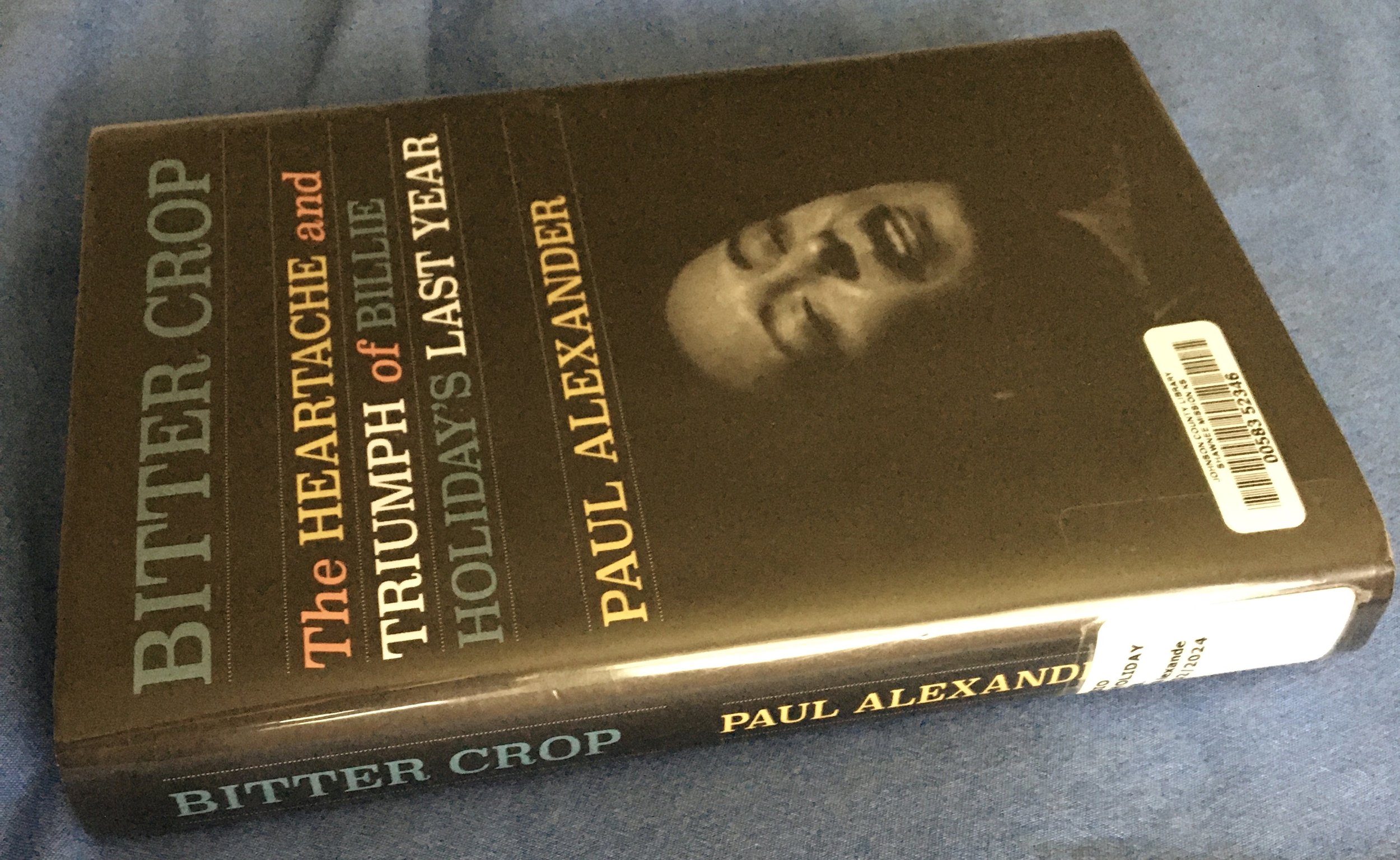Original image by There Stands the Glass.
A mid-priced CD containing an hour of recordings for Verve Records was my first encounter with Billie Holiday. In addition to permanently demarcating my taste in jazz vocals, the mid-1980s acquisition introduced me to staples of the Great American Songbook. Holiday’s slippery, scat-free delivery of songs like “All or Nothing at All,” “Comes Love,” and “Darn That Dream” is staggeringly profound.
Detailed accounts of Holiday’s fabulist tendencies, sexual proclivities and drug and alcohol intake in Paul Alexander’s new study Bitter Crop: The Heartache and Triumph of Billie Holiday’s Last Year don’t add or detract from my appreciation of her artistry.
The importance of Alexander’s work lies in his chronicling of the concerted campaign by United States government agencies in derailing Holiday’s career. The decades-long harassment went well beyond the revoked cabaret card that’s a notorious part of Holiday lore.
Bitter Crop examines the ways in which Holiday was hassled in virtually every aspect of her life. What Alexander characterizes as “a sinister- and intentional- tactic of intimidation” persisted even as Holiday was on her deathbed. It’s impossible not to feel outraged about the unjustifiable human tragedy suffered by Holiday as well as for the cultural loss resulting from the United States’ slow-motion assassination of one of the most important artists of the 20th century.


